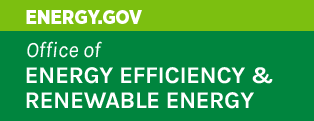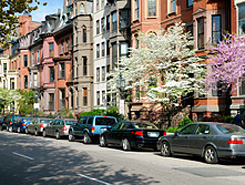Massachusetts Clean Cities
The Massachusetts Clean Cities works with vehicle fleets, fuel providers, community leaders, and other stakeholders to identify community-driven choices that save energy and promote the use of alternative fuels and advanced vehicle technologies in transportation.
General Stats
- Designated: March 18, 1994
- Population: 7,044,056 (based on 2024 Census estimate)
- Area: 8,105 sq. mi.
- Local/Regional Service Area: Entire state of Massachusetts including tribal lands
Alternative Fueling Stations
Including public and private stations

- Biodiesel (B20 and above): 1
- Electric (charging outlets): 11,378
- Ethanol (E85): 8
- Hydrogen: 1
- Natural Gas: 12
- Propane: 35
Energy Use Impact*
Annual Energy ImpactEmissions Reduced*
Annual Emissions Reduced
Zachary Jenkins
Zachary Jenkins is the Massachusetts Clean Cities Coalition program Director within the Massachusetts Department of Energy Resources. He assists public and private fleets, as well as individual consumers, in the adoption of alternative fuel vehicles through policy creation/implementation, consumer education, and facilitating transportation related events. He graduated from the University of Massachusetts Amherst with an MS in Sustainability Science and a concentration in Urban Sustainability.
Learn about just some of the projects from Massachusetts Clean Cities. Visit the Massachusetts Clean Cities website for more projects and information.
Projects and Case Studies- Initiative for Resiliency in Energy through Vehicles (iREV)
- Removing Barriers, Implementing Policies and Advancing Alternative Fuels Markets in New England
- Cape Cod National Seashore
- Massachusetts School Fleets Get Answers through Electric Bus Testing
- Massachusetts Sees Significant Growth in Electric Vehicles and Infrastructure
- Massachusetts Fleet Braun's Express Celebrates 10 Years of Petroleum Reduction Success
 Worcester Regional Transit Authority Drives Electric
Worcester Regional Transit Authority Drives Electric
 Boston Public Schools Moves to Propane
Boston Public Schools Moves to Propane

